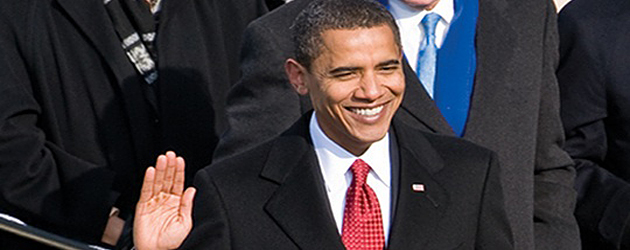By Lisa Keen/Keen News Service–
The Obama administration continues to back up its words of support for marriage equality with action, this week taking the seldom used strategy of submitting a brief in a Supreme Court case in which the United States is not involved. The brief also urges the high court to view discrimination based on sexual orientation with the same sort of heightened scrutiny currently reserved for discrimination based on sex.
But the brief does not advocate for a dramatic ruling that all bans on same-sex marriage are unconstitutional. Instead, it suggests the court “can resolve” the lawsuit over California’s ban on same-sex couples marrying “by focusing on the particular circumstances presented by California law and the recognition it gives to committed same-sex relationships, rather than addressing the equal protection issue under circumstances not present here.” That strategy, notes veteran Supreme Court reporter Lyle Denniston, indicated “the administration is not yet ready to take a firm position on whether the ‘fundamental right to marry’ that the Court has recognized repeatedly is a right that should be open also to same-sex couples.”
The Solicitor General’s brief was well-received by many LGBT groups who were not sure the administration would submit any brief at all in the Hollingsworth v. Perry case, testing the constitutionality of Proposition 8.
Asked about that at a press conference Friday (March 1), President Obama said that, once the Supreme Court decided to take the Proposition 8 case, “I felt it was important for us to articulate what I believe and what this administration stands for.”
“[I]f the Supreme Court asks me or my Attorney General or Solicitor General, do we think that meets constitutional muster, I felt it was important for us to answer that question honestly — and the answer is no,” said Obama.
President Obama backed off a bit when the reporter why his administration did not go so far as to argue that marriage is a “fundamental right” for gay people, the same as heterosexual couples. He said his solicitor general was charged with answering the specific question before the court, which was not about whether marriage was a fundamental right.
“The specific question presented before the Court right now is whether Prop 8 and the California law is unconstitutional,” replied Obama. “And what we’ve done is we’ve put forward a basic principle, which applies to all equal protection cases. Whenever a particular group is being discriminated against, the Court asks the question, what’s the rationale for this — and it better be a good reason. And if you don’t have a good reason, we’re going to strike it down.
“And what we’ve said,” continued Obama, “is that same-sex couples are a group, a class that deserves heightened scrutiny, that the Supreme Court needs to ask the state why it’s doing it. And if the state doesn’t have a good reason, it should be struck down.”
“Now, the Court may decide that if [the reason] doesn’t apply in this case, it probably can’t apply in any case. There’s no good reason for it. If I were on the Court,” said Obama, “that would probably be the view that I’d put forward. But I’m not a judge, I’m the President. So the basic principle, though, is let’s treat everybody fairly and let’s treat everybody equally. And I think that the brief that’s been presented accurately reflects our views.”
But following weeks of speculation and some political goading, U.S. Solicitor General Donald Verrilli Jr. submitted a brief February 28 urging the U.S. Supreme Court to strike down California’s ban on same-sex marriage. The 33-page brief argues that Proposition 8 is based on “impermissible prejudice,” an argument that implicates the Supreme Court’s 1996 ruling, in Romer v. Evans, that laws cannot be based on animus.
The brief also argues that Proposition 8 does not serve any important governmental interest and that it violates the U.S. Constitution’s guarantee of equal protection.
And in an equally important aspect, the Obama administration’s brief argues that laws, such as Proposition 8, which disadvantage citizens because of their sexual orientation, should received heightened –or tougher— scrutiny from the courts. Such scrutiny is much tougher to satisfy than the basic rational scrutiny that gives legislatures considerable deference. But heightened scrutiny is less tough than strict scrutiny, reserved for laws disadvantaging people based on race, which are nearly impossible to satisfy.
There has been discussion and speculation for weeks over whether the Obama administration would submit a brief in the Proposition 8 case. As a New York Times article pointed out February 4, the solicitor general’s office had ample precedent to stay out of the case to which it was not a party.
Ted Olson, who was solicitor general under President George W. Bush in 2003 when the Lawrence v. Texas case in the Supreme Court, did not file a brief in that case, regarding laws that banned same-sex couples from having intimate relations. Thurgood Marshall, who was solicitor general under President Lyndon Johnson during the 1967 Loving v. Virginia contest, did not file a brief in that case, challenging laws that banned interracial marriage. And Charles Fried, solicitor general under President Ronald Reagan, did not file a brief in the 1986 Hardwick v. Bowers case that initially upheld sodomy laws.
In submitting the brief Thursday (February 28), the Department of Justice issued a statement from Attorney General Eric Holder, saying, the government brief “seeks to vindicate the defining constitutional ideal of equal treatment under the law.”
“Throughout history, we have seen the unjust consequences of decisions and policies rooted in discrimination,” said Holder. “The issues before the Supreme Court in this case and the Defense of Marriage Act case are not just important to the tens of thousands of Americans who are being denied equal benefits and rights under our laws, but to our Nation as a whole.”
The brief notes that, like California, seven other states have laws limiting the rights of same-sex couples to “domestic partnerships.” Those states –including Illinois, Delaware, Hawaii, Nevada, New Jersey, Oregon, and Rhode Island—could be affected by the Proposition 8 ruling, should the Supreme Court accept the reasoning of the solicitor general.
“Proposition 8, by depriving same-sex couples of the right to marry, denies them the ‘dignity, respect, and stature’ accorded similarly situated opposite-sex couples under state law and does not substantially further any important governmental interest,” states the brief. “It thereby denies them equal protection under the law.”
“The Government’s action today is a powerful statement that Proposition 8 cannot be squared with the principles of equality upon which this nation was founded,” said Adam Umhoefer, head of the American Foundation for Equal Rights, which organized the lawsuit against Proposition 8. “It is an unprecedented call to action by our Government that it is time to recognize gay and lesbian Americans as full and equal citizens under the law.”
“The President has turned the inspirational words of his second inaugural address into concrete action by urging our nation’s highest court to put an end to discrimination against loving, committed gay and lesbian couples and their families,” said AFER founder and current president of the Human Rights Campaign, Chad Griffin.
During his second inaugural address, President Obama said, “Our journey is not complete until our gay brothers and sisters are treated like anyone else under the law – for if we are truly created equal, then surely the love we commit to one another must be equal as well.”
On February 22, the solicitor general submitted an anticipated brief in the second big marriage equality case before the Supreme Court. In that case, U.S. v. Windsor, the court will decide whether the federal Defense of Marriage Act (DOMA) violates the constitutional rights of legally married same-sex couples by denying recognition of their marriages in relation to federal benefits.
© Copyright 2013 by Keen News Service. All rights reserved.








